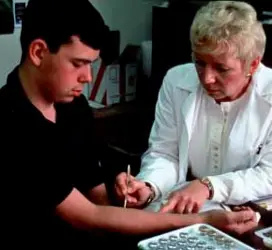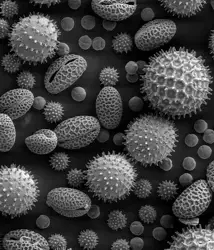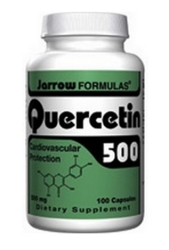|
||||||||||
 |
|
| November 12, 2012 | To ensure delivery of this email, please add newsletter@hairboutique.com to your contacts. |
The Link Between Allergies and Depression This Week's Coupon, Save 20%: ILLUMINATE20 Although a tremendous amount of research has been done to understand the root causes of depression, there are still some unknown triggers. One possible cause of depression has been linked to allergies. Some experts believe the tie between allergies and depression is more significant than previously thought. Common Theory Of Depression - Serotonin & Norepinephrine The commonly accepted theory about depression is that it’s caused by flagging levels of feel-good serotonin and norepinephrine in the brain. According to the most commonly accepted hypothesis, depression arises when low serotonin levels promote low levels of norepinephrine, a monoamine neurotransmitter. Norepinephrine may be related to alertness and energy as well as anxious feelings, attention, and interest or lack of interest in life. Serotonin is linked to anxiousness, obsessions, and compulsions. Dopamine is tied to attention, motivation, pleasurable feelings, and reward, as well as interest in life. Allergy Attacks – Links Between Allergies And Depression Some scientists believe histamine, a chemical released during an allergic episode, may impact the brain and nervous-system receptors. Richard Firshein, D.O. examines the link between allergies and depression in his book, The Nutraceutical Revolution. Dr. Richard Firshein D.O. – Alleviating Allergies To Alleviate Depression Firshein has proposed that histamines may cause the body to reabsorb its natural feel good chemicals before they can do their normal functions. The aftermath? After an allergic episode there may be a period of feeling blue or depressed. Dr. Firshein has reported success in treating some of his patients who have allergies and depression by alleviating the allergies. He notes that sometimes when the allergies are cleared up the bouts of depression are also eliminated.
Dr. Teodor T. Postolache – Biological Link Between Allergies And Depression A 2005 study conducted at the University of Maryland School of Medicine in Postolache’s study also explained that allergic rhinitis is known to cause specialized cells in the nose to release cytokines, a kind of inflammatory protein. Animal and human studies alike suggest that cytokines can affect brain function, triggering sadness, malaise, poor concentration, and increased sleepiness. First Steps – Identifying Source Of Allergies Dr. Firshein suggests that the best action to take to determine if your allergies are leading to feelings of depression is to identify the source of your allergies. There are a wide range of foods, drugs and other substances which can activate allergies. Even hair and beauty related products can create allergic reactions in some users. Allery Testing Allergy testing may be needed to find out whether the symptoms are an actual allergy or are caused by other problems. For example, a runny nose or cough may actually be due to an infection. Skin testing is the most common method of allergy testing. One type of skin testing is the stick test. It involves placing a small amount of the suspected allergy-causing substances on the skin, and then slightly pricking the area so the substance moves under the skin. The skin is closely watched for signs of a reaction, which includes swelling and redness. Additional Types Of Allergy Testing Other types of skin tests include area testing and intradermal testing as well as: - Hemoglobin tests can measure the levels of allergy-related substances, especially one called immunoglobulin E (IgE). In some cases, a health care provider may tell you to avoid certain items to see if you get better, or A health care provider may also check your reaction to bodily triggers by applying heat, cold, or other stimulation to your body and watching for an allergic response. Sometimes, a suspected allergen is dissolved and dropped into the lower eyelid to check for an allergic reaction. Eliminating Allergy Triggers Once comprehensive allergy testing is complete the thought process would be to eliminate all known triggers. Dr. Firshein also suggests working with natural antihistamines and anti-inflammatory agents to determine if they will eliminate allergic reactions. Dr. Firshein suggests trying a two week supplementation program of 300 mg of quercetin (2x daily) and two 400 mg capsules of nettles (3x daily). Note: Always work with your own health care provider to make sure quercetin and nettles are acceptable for you to take. While taking the natural supplements and herbs keep a daily journal to note down any changes in allergies or reactions. The supplements should be limited to only a two week period only since long term use may not provide beneficial results. If natural antihistamines and anti-inflammatory agents don’t work, talk to your health care provider about prescription alternatives. Depression Without Allergies Once allergic triggers and symptoms are cleared it may become more clear whether depression exists as an after effect or in conjunction with allergies or due to other reasons. Once it’s clear there is no direct link between depression and allergies, proper treatment can be prescribed and administered. Summary – Allergies And Depression The exact cause of depression is not known. Many researchers believe it is caused by chemical changes in the brain. This may be due to a problem with genes, or triggered by certain stressful events.
Some types of depression may be genetic but depression can also occur with no prior family history of the illness. Anyone of any age can develop depression. Certain medical conditions including an under active thyroid, heart diseases, serious illnesses or long-term pains may activate a bout of depression. Long term insomnia, alcoholic beverages, steroidal use and stressful life events such as divorce, career loss, death of someone close, childhood traumas or neglect or societal isolation may also lead to periods of deep depression. Whether allergies and insomnia or linked or not, any type of depression should be taken seriously and treated. |
| If you would like to consult with Karen personally about any of your hair care questions, please see our Ask Karen page. We would love your feedback about this newsletter! Share your thoughts and ideas with us! |
 |
 |
 |
 |
 |
 |
| Copyright 1997-2009, hairboutique.com, All Rights Reserved. Terms of Service, Privacy Statement, Advertise, Contact Us, Press |
| Please note that you are receiving this mail because in the past you signed up for the HairBoutique.com mailing list. To remove yourself from this list click here. This mailing is in full compliance with U.S. Federal requirements for commercial e-mail under bill s.1618 Title 111, Section 301, Paragraph (a) (2) (c) passed by the 105th U.S. Congress. |



 It’s important to note that not all people who have allergies will have depression nor will all people who suffer from depression also suffer from allergies. However studies do indicated that allergies can definitely be a risk factor for depression.
It’s important to note that not all people who have allergies will have depression nor will all people who suffer from depression also suffer from allergies. However studies do indicated that allergies can definitely be a risk factor for depression. to use suspected items to see if you feel worse. This is called “use or elimination testing.” This is often used to check for food or medication allergies.
to use suspected items to see if you feel worse. This is called “use or elimination testing.” This is often used to check for food or medication allergies. More likely, it’s a combination of both. Some experts believe allergies may also be a for depression.
More likely, it’s a combination of both. Some experts believe allergies may also be a for depression.
